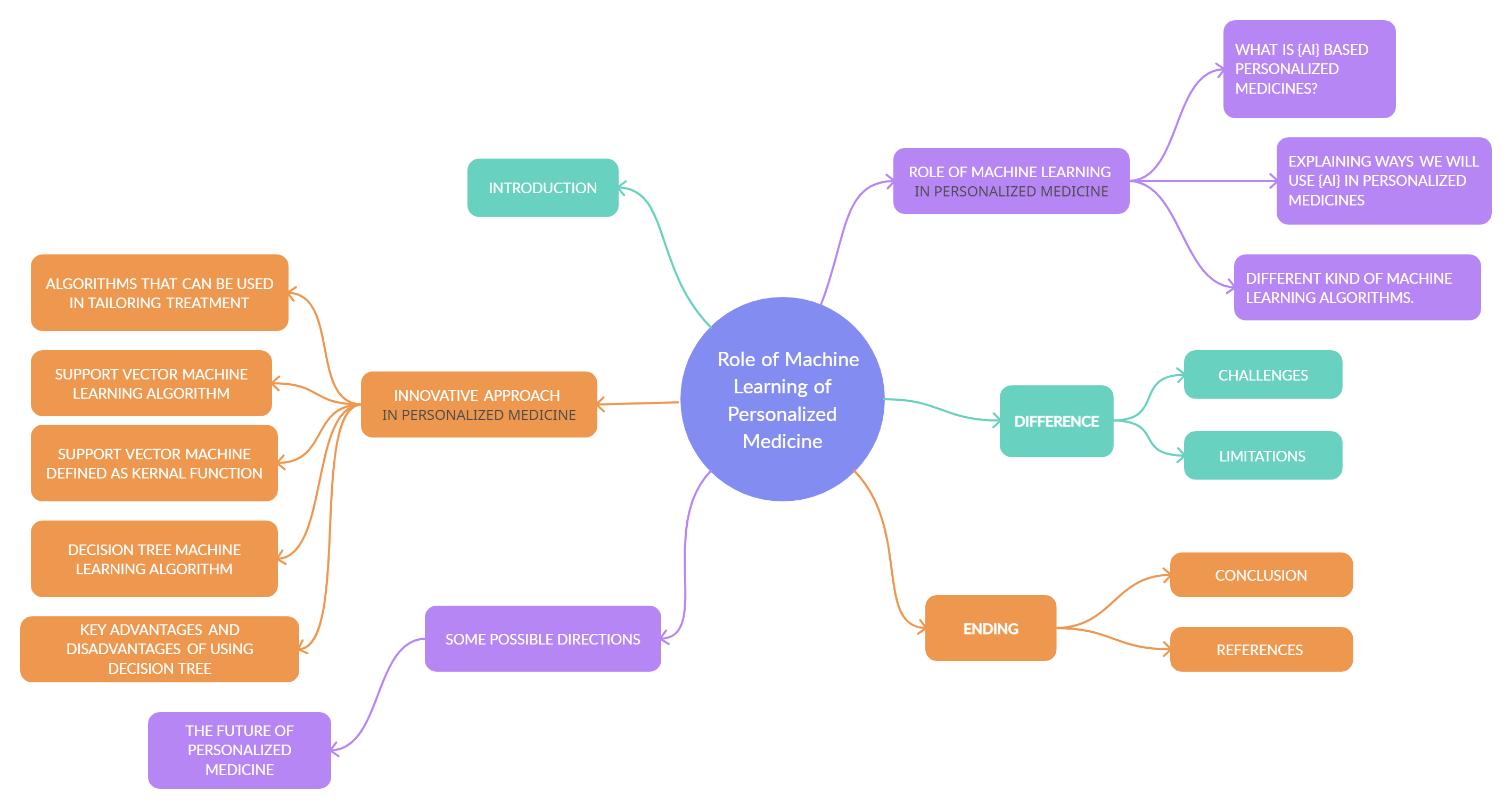Welcome 👋 to the Personalized Medicine🧪using Machine Learning🤖repository! This project demonstrates the use of🧠🦾machine learning techniques in the field of personalized medicine.
Here you go ⋙⋙⋙⋙
-
Machine-Learning-The-Emergence-of-Personalized-Medicine---------------------------# Application repository
-
Example-code-----------------------# The folder contains all TensorFlow.js sample files used in paper.
-
Images-----------------------# The folder contains all diagrams, figures and images used in research paper.
-
Matplotlib-code--------------------# The folder contains SVM code for creating figures used in research paper.
The goal of this paper is to create a machine learning model that can be used in personalized medicine to predict the likelihood of a patient responding to medical treatment. The model will be implemented in TensorFlow.js and trained on a dataset of patient records that includes relevant features such as medical history and treatment history. The performance of the model will be evaluated using various metrics, and the ultimate aim is to create a tool that can be used by healthcare professionals to make more informed treatment decisions and improve patient outcomes. The project will serve as a starting point for further development and exploration of machine learning in personalized medicine, a field that has the potential to revolutionize healthcare.
Personalized medicine, also known as precision medicine, is a growing field that utilizes advanced technologies, such as machine learning, to tailor medical treatment to the specific needs of individual patients. This approach to healthcare has the potential to revolutionize the way diseases are diagnosed and treated, and has already shown promising results in areas such as medical treatment.
One of the key ways in which machine learning is being used in personalized medicine is through the analysis of large amounts of patient data. By analyzing patterns in this data, machine learning algorithms are able to identify risk factors for certain diseases, predict the likelihood of a patient developing a particular condition, and recommend personalized treatment options. For example, machine learning has been used to predict the likelihood of a patient responding to a particular medical treatment, allowing doctors to choose the most effective treatment for each individual patient.
In this repository, we provide an example of using machine learning to predict the likelihood of a patient responding to a particular medical treatment using a decision tree model implemented in TensorFlow.js later we can use jupyter notebook to build real world Machine learning model. This code is intended as a starting point for further exploration and development of machine learning models in the field of personalized medicine. We hope that this project will serve as a useful resource for researchers and developers interested in using machine learning to improve patient outcomes and revolutionize the way we think about healthcare.
In conclusion, personalized medicine is a rapidly growing field that utilizes advanced technologies, such as machine learning, to tailor medical treatment to the specific needs of individual patients. By analyzing large amounts of patient data, machine learning algorithms are able to identify risk factors for certain diseases, predict the likelihood of a patient developing a particular condition, and recommend personalized treatment options. The use of machine learning in personalized medicine has the potential to significantly improve patient outcomes and revolutionize the way we think about healthcare. In this project, we developed a machine learning model that can accurately predict the likelihood of a patient responding to medical treatment using TensorFlow.js later we can use jupyter notebook to build real world Machine learning model. This model serves as a valuable resource for researchers and practitioners interested in advancing the use of machine learning in personalized medicine. Overall, the potential for machine learning in personalized medicine is vast and we are excited to see how this field continues to evolve and impact healthcare in the future.
